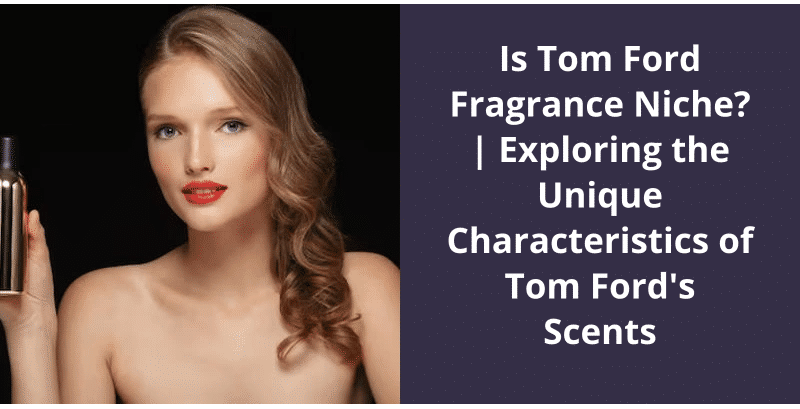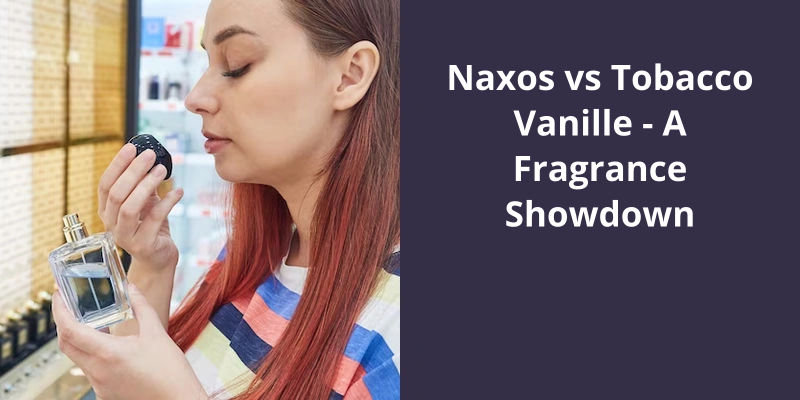The world of fragrances is vast and diverse, with an endless array of scents to choose from. These are the so-called "niche fragrances", which are produced by small, independent perfumeries and are often crafted with unusual or exotic ingredients. While designer brands like Chanel, Prada, and Tom Ford dominate the mainstream fragrance market, niche fragrances offer something different – a chance to stand out from the crowd and discover scents that are truly one-of-a-kind. In this article, we will explore the world of niche fragrances with a focus on Tom Ford fragrance, examining what makes it unique and why it’s become such a popular choice for those seeking a distinctive scent.

Is Tom Ford a Niche Perfume Brand?
Tom Ford is a brand that’s widely recognized for it’s luxury and high-end products. Fragrances are just one among many of Tom Fords product offerings, and while the brand may not be classified as niche in the fragrance world, it certainly has a diverse range of scents that appeal to a wide audience.
This is likely one of the reasons why the brand has become so popular over the years, as it offers a diverse range of fragrances that appeal to a wide variety of consumers.
The brands fragrances are often characterized by their luxurious and opulent feel, and they’re designed to evoke a sense of glamour and sophistication. This is evident not only in the scents themselves but also in the packaging, which is sleek and elegant, and often adorned with the brands signature gold monogram.
This is likely due to the fact that the fragrances are often associated with high-end fashion and luxury, and they’re often worn by celebrities and other high-profile individuals.
The market for luxury niche perfumes is thriving and expected to continue growing steadily in the coming years. With key players implementing innovative strategies, the market is projected to experience significant growth between 2022 and 2027. However, the question remains whether or not the perfume industry as a whole is considered a niche market.
Is Perfume a Niche Market?
Perfume is a highly specialized and niche market that caters to individuals who value fragrance as an expression of individuality and self-care.
Consumers are increasingly interested in fragrances that reflect their individuality and personal style rather than the mainstream and mass-produced fragrances. Moreover, growing awareness about the environmental and social impact of perfumes has led consumers to seek out fragrances that use natural ingredients and are cruelty-free.
The niche fragrance market is highly competitive and dominated by a few key players such as L”Oreal, Coty, Puig, Estée Lauder, and LVMH. These companies offer a wide range of premium and exclusive fragrances under popular brands such as Chanel, Dior, Gucci, and Tom Ford. However, the market also offers opportunities for small and independent perfume houses to establish a niche market by offering unique and exclusive fragrances that cater to a specific consumer segment.
Effective marketing strategies such as social media and influencer marketing can help companies to reach a wider audience and build brand awareness in a highly competitive market.
To succeed in this highly competitive market, companies must focus on product differentiation, innovation, and effective marketing strategies to create a loyal customer base and establish a strong brand presence.
Source: Luxury Niche Perfume Market Projected to Surpass 5407.0
It’s important to understand the difference between niche and commercial perfumes when choosing a fragrance. The distinction lies in the size of the company and the intended audience of the scent. While niche brands are created by smaller, family-owned companies, commercial perfumes are designed for a wider audience and have less risk-taking in their smell. However, this often means sacrificing quality and longevity for a more affordable price point.
What Is Niche vs Commercial Perfume?
Niche perfumes are created with a distinct identity in mind. They’re often produced in small batches and cater to a particular segment of the market. Additionally, niche brands often rely on word-of-mouth advertising rather than mainstream advertising campaigns.
On the other hand, commercial perfumes focus on appealing to a much larger audience, sometimes to the masses. They’re often created by major fragrance houses and may be endorsed by celebrities for mass appeal. Commercial fragrances are designed to be less daring or risky scent-wise, to please a wide demographic, which consequently means a limited scope of olfactory creativity.
Conclusion
These fragrances capture a distinct mood and emotion, evoking powerful and unforgettable experiences.





